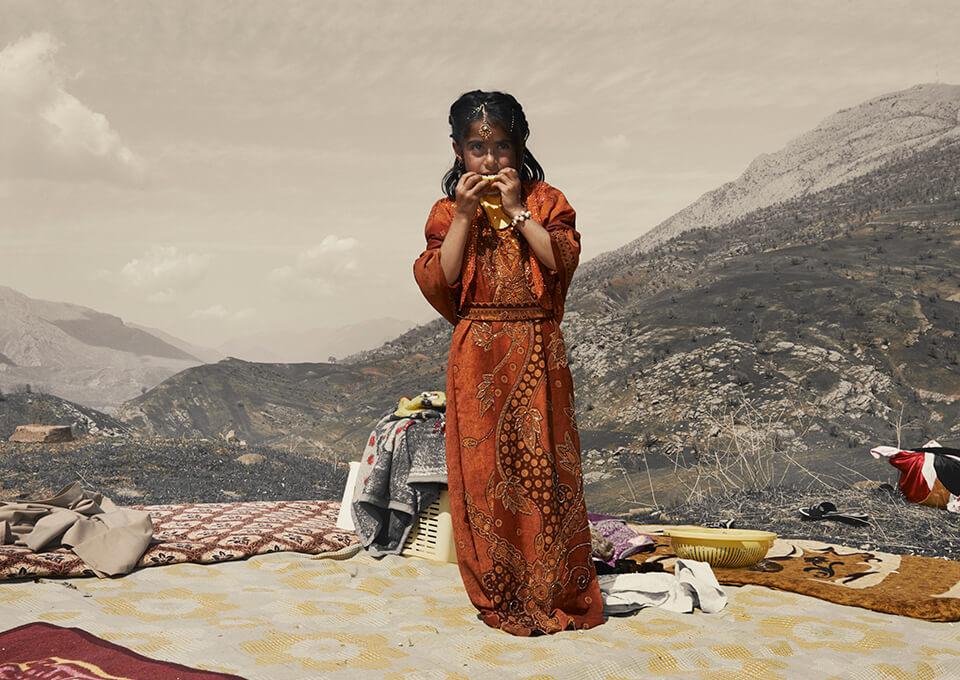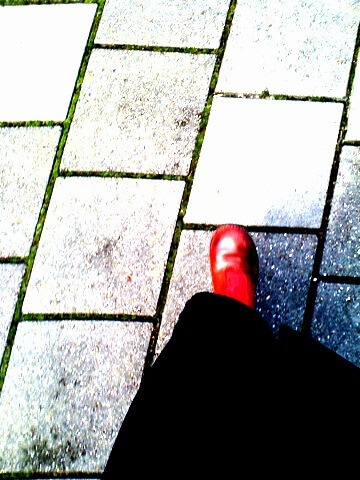I lean back on the cushion against the wall, just under the window. Behind me it’s slowly getting dark above the snow-covered peaks of the Hasarust mountains. “Only the mountains love the Kurds”, our interpreter had said to me that afternoon.
If it were quiet, we would be able to hear the gurgling of the mountain stream next to the house. But it’s not quiet. The television is repeating non-stop fragments of people dancing into the New Year in various parts of Iraqi Kurdistan. Their arms around each other’s shoulders, legs kicked forward one at a time.
I’d like to kick my legs out as well; I’m not used to sitting cross-legged on the ground for hours on end. If I could only just stretch them out for a moment. But showing the soles of your feet is rude.
Mecca
Runak, the mother of the family we’re staying with, has just started praying in front of the television, with her broad behind facing us and her head out of sight under a white headscarf. Apparently Mecca is where the television is.
“Take it easy”, she had told us. “Put on your pyjamas, make yourself at home.” We had declined. Apart from the fact that I fear Runak wouldn’t recognise my holey T-shirt as pyjamas, I didn’t really feel comfortable joining complete strangers at table in sleepwear.
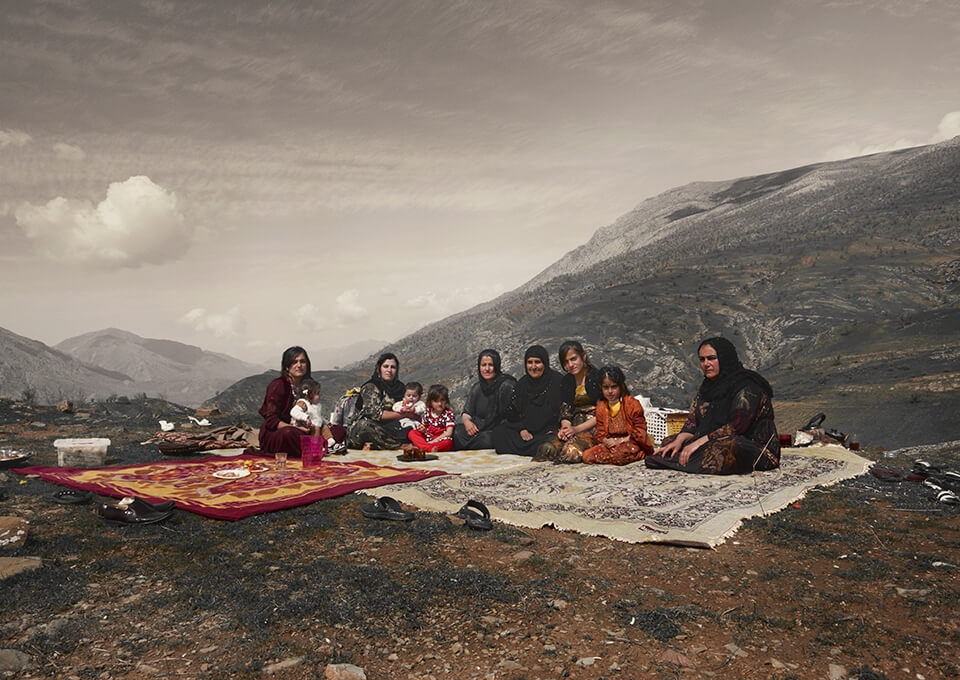
We had ended up at the Rustays’ by accident. Just like everywhere we end up in Kurdistan. As soon as we say we want to go somewhere, there is always a brother, an aunt or a cousin who offers us a place to stay.
Kurds are very hospitable, we have noticed. As a Kurdish granny put it that afternoon: If you want to go to the snow, we’ll take you to the snow. This time it was the son who invited us. And so we were driven right through the mountains and the canyons to the east of Kurdistan.
8×4 Glam
When we arrived, the family had already left for the annual New Year’s picnic further up in the mountains that separate Iraq from Iran. An aunt and uncle looked after us and provided us with tea and food. Afterwards, the uncle opened the sideboard and conjured up an 8×4 Glam aerosol.
After the entire family was ‘glammed up’, the bottle was also made available to us as a generous gesture. After that, they arranged a car and we were driven to the border of Iraq with a group of total strangers, enveloped in a sweet haze of deodorant, to have a picnic with a family who were also total strangers.
Outdoor toilet
And now we’re back home and about to eat again. Father Assaad is staring at his wife’s behind while he holds a conversation on two mobile phones at the same time. I decide to nip to the loo and stretch my legs. Runak had explained that there are two toilets. The outdoor toilet next to the purple kitchen is for the ‘serious business’. You can use the indoor toilet if you need to ‘spend a penny’.
I walk past the praying figure of Runak to the outside. Granny, or is it great-aunt? stops me and pushes me in the direction of the indoor toilet. My rudimentary knowledge of Kurdish consists of two words: thank you and good day. Both are inadequate for informing granny about my serious business.
Guard
So I meekly let her send me into the toilet and stare at the hole in the ground. To make sure no-one secretly does a ‘number two’ indoors, a sieve has been hung in the waste pipe. I can hear granny’s heavy breathing as she stands guard outside the door.
Kurdish grannies are amazing. Wherever you are, they are always willing to protect you from peeping toms. In the mountains earlier, I had looked round somewhat desperately when the copious amounts of tea took its inevitable toll. There was a Kurd family sitting on every slope and the small trees were nothing more than leafless skeletons that were difficult to hide behind.
Headscarf
Granny had seen my predicament and pulled me along with her. In the middle of the field she had taken off her enormous headscarf, draped it round me and indicated that I could quietly get on with my business. After that I was completely blocked for fear of splashing on granny’s headscarf.
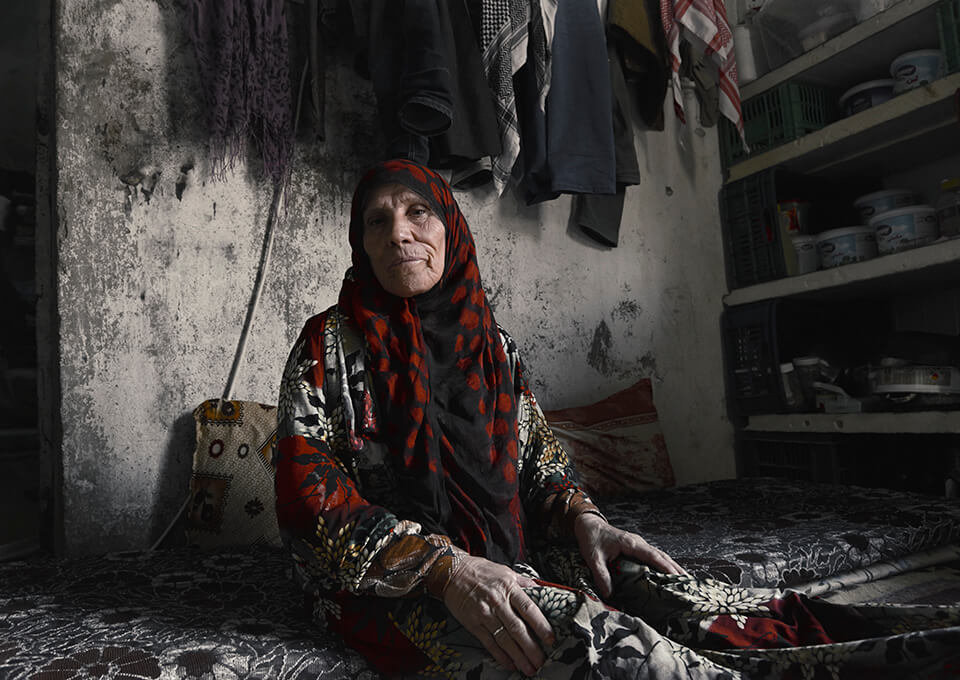
For appearances’ sake, I flush the toilet using the little plastic jug and then flee to the outside toilet. Son Rubar is standing in front of the door. A pear-shaped boy who smokes cigarettes from a small pipe made of bone. He greets me and pulls out his whole English vocabulary: “Yes yes.”
Bone pipe
Rubar had told me that afternoon that the doctor had advised him to stay well away from cigarettes. Hence the bone pipe.
Once I’m back in the living room, daughter Sayran is setting the floor.
From a roll, she pulls out an elongated piece of plastic the size of a dining table and spreads it on the ground. A little later, bowls, dishes, plastic beakers and a carafe of water follow. At the corners, she lays the flat naan bread, folded in four, and we tear pieces off to pick up rice, gherkins, chicken and other dishes gerechten op te pakken.
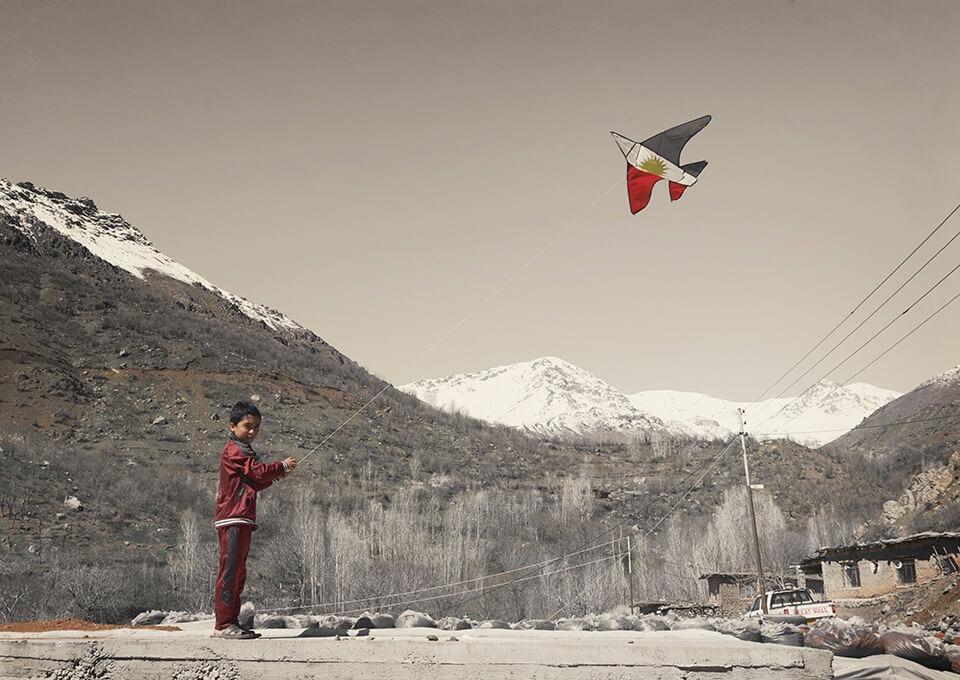
While we are eating, the room fills up with neighbours and family members, mainly men and boys. But also a couple of surly-looking young women with small children. I discover only later that it’s not surliness, but extreme shyness. Quietly they move into a large circle around us and watch how we eat.
When number fifteen has joined the group, I say, as a joke, “OK, you can take turns to ask us a question.” Once the interpreter has translated it, I notice that they shake their heads enthusiastically and raise their hands en masse.
Fatty
The first question comes from the pear-shaped son. “You say that in your country you cycle to work, but if you have such a healthy lifestyle, why are you so plump?” That hits home, although it’s a strange question considering our host family and most of the people around us, even the children, are many times fatter. Later the guide tells me that he hadn’t used the word plump; that was what they had made of it. “Fatty”, he had said.
Fortunately I don’t need to reply, because father has an urgent question: How much dowry had my husband paid for me? In Kurdistan, the men pay a sum in gold for the women. That way, the women who do not work officially and earn an income still have something for a rainy day.
Dowry of Kurdistan
I wait for a moment and then say, “Nothing – I was free because I’m so fat.” It is quiet for a moment and then they are rolling on the ground with laughter. “Ha ha”, the father hiccups, “then they should have given me money for my wife. She is so fat,” and with his plump arms, he indicates the size of his wife.
Runak gives him a withering look and then begins to shout. The interpreter tells me that she is now listing all his shortcomings. That her dowry was totally inadequate for marrying a dead loss who never does a thing.
Baldness
Her husband looks at her rather dazedly and then begins in turn to name her faults. The village watches in amusement, while the interpreter translates the shouting. Once it is quiet again, a bald man sticks up his hand. Since we are such well-travelled ladies, he would like to know if we have a remedy for baldness. Clearly a question for the photographer.
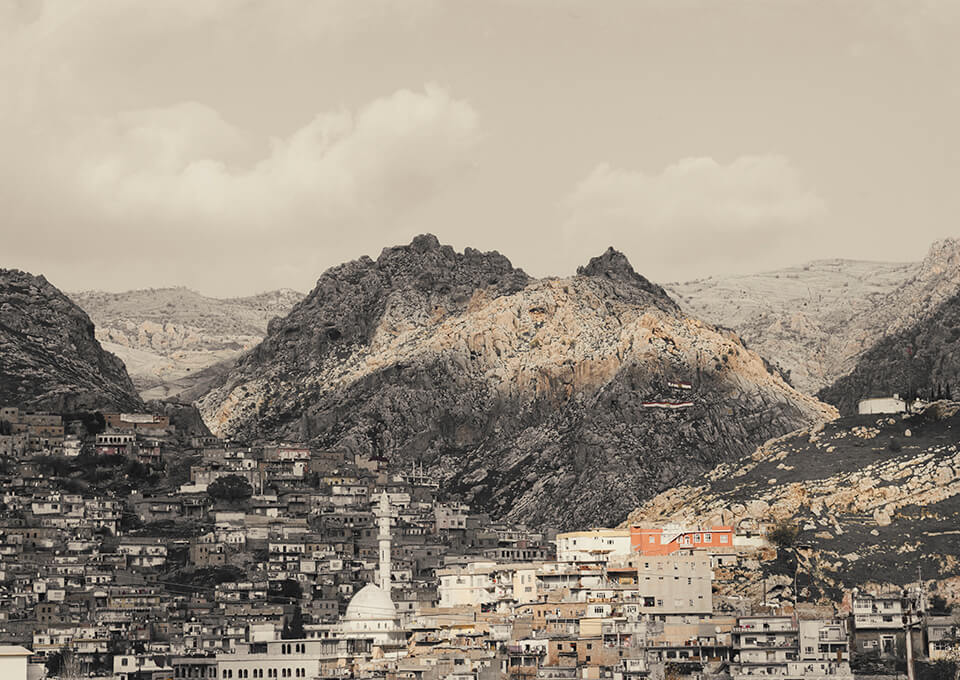
“Of course we do. You must begin every morning by doing a handstand”, says Mrs Nomad. So that the blood drops right into the capillaries. That stimulates growth.” The men look at her and nod. It makes sense. “And then”, the photographer continues unperturbed, “you have to break a raw egg onto your head every morning and massage it in for five minutes.
After that, ask your wife to break a second egg on your head.” It’s quiet for a moment and I suspect they realise they’re being taken for a ride, but then the bald man says: “But what if you’re not married?”
Kurdish pyjama party
It’s time to go to sleep and we move into the empty room next to the living room. Granny and Sayran bring us mats and blankets. Once we are alone with Juan the interpreter, I stick my hand into my rucksack to get out the illicit bottle of wine.
We are ready for a drink. Ta-da! The door flies open and granny, mother, Sayran and all the women from the neighbourhood come in with dishes of fruit, walnuts, biscuits and cups of coffee. They wheedle themselves in between us. It’s a Kurdish pyjama party!
Shortcomings
“Does she sleep in your room?” the photographer asks when the neighbour explains that her two-year-old daughter goes to sleep at the same time as her parents. “What a strange question!” says Runak. “Children all sleep in the same room with their parents, don’t they?”
I think about the 24-year-old son, 16-year-old Sayran and all those children who will soon be lying in the living room beside their father and mother. They do have a bedroom, we understand, but no-one ever sleeps there.
Making babies
‘’Where do they make all these children then?” I mumble to the photographer, but the guide hears me and translates immediately. To my surprise, Runak just gives an answer, in front of everyone in the room. “Sometimes we sneak into this room and sometimes we wait until the children have gone to school”, she laughs with a crooked smile. Apparently Assaad doesn’t only have shortcomings.
Text: Anneke de Bundel – Images: Nicole Franken
Translation: Christine Garner
This feature has been written on invitation by the Kurdish ministry.
More Kuridstan? Read:
Kurdistan praktical:
- We undertook this trip with Iraqi tours
- Iraqi tours organises taylor made travels with local people
- You fly to Sulemanya of Erbil.
- Flights from Amsterdam around €600

